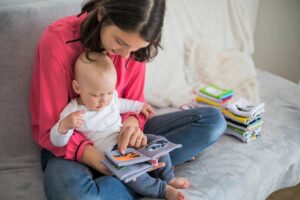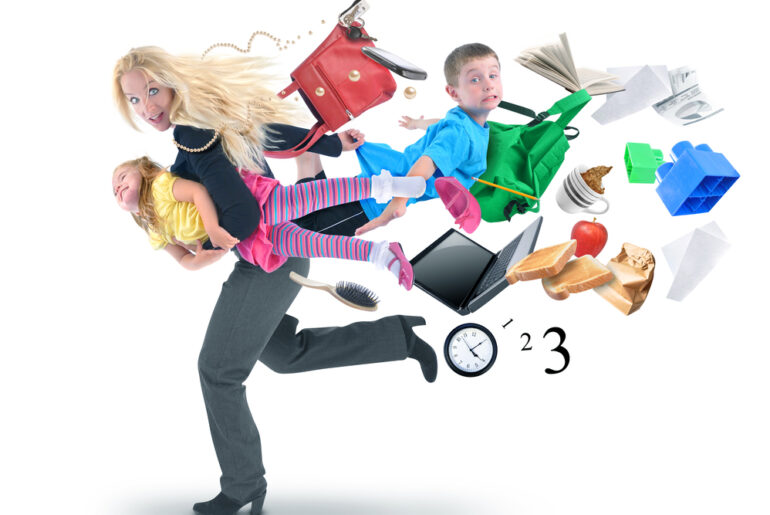The New EU Gender Equality Roadmap : A Call for Inclusion of Mothers
04.03.25
The European Commission’s initiative on a new Gender Equality Roadmap post-2025, marks a significant step forward in addressing gender disparities across the European Union. Make Mothers Matter (MMM) welcomes the EU’s commitment to continue with its initiatives to closing gender pay gaps, implementing pay transparency, increasing women’s representation on company boards, and developing frameworks for work-life balance, the strategies on care and mental health. However, we emphasise the need for the Roadmap to explicitly recognise and address the unique challenges faced by women who are mothers. Mothers represent a substantial portion of the female population in the EU and experience multifaceted inequalities and intersectional discrimination.

Recognising the inequalities faced by mothers
Despite the EU’s commendable efforts, mothers in Europe continue to confront systemic inequalities. This has been confirmed by MMM’s grassroots members working with mothers and families across Europe, as well as by data from our 2021 French survey of 23,000 mothers and our 2024 European survey of 9,600 mothers across 11 EU countries and the UK. These findings highlight the pressing need for comprehensive implementation of EU frameworks at the national level, increased investments addressing gender disparities, and robust accountability mechanisms to ensure real change. National and local authorities, as well as companies, must be held responsible for making these changes a reality.
Furthermore, we call for expanded EU campaigns that amplify the voices of mothers and combat the various forms of discrimination they continue to face today.
Addressing intersectional challenges for mothers
Mothers face unique challenges that intersect with other forms of discrimination. Key areas requiring urgent attention include :
1. Unpaid care and domestic work
 Mothers continue to shoulder the majority of unpaid care and domestic work within their families, despite various EU initiatives aimed at addressing this imbalance. This unequal distribution negatively impacts their economic security, professional growth, education, political participation, and social standing. As a result :
Mothers continue to shoulder the majority of unpaid care and domestic work within their families, despite various EU initiatives aimed at addressing this imbalance. This unequal distribution negatively impacts their economic security, professional growth, education, political participation, and social standing. As a result :
- They experience multiple gender gaps and workplace discrimination.
- Their caregiving skills remain unrecognised in professional pathways.
- They are at greater risk of poverty and domestic violence.
- Their mental and physical health is disproportionately affected.
2. Economic and financial barriers
Women, particularly mothers, are at a higher risk of poverty and social exclusion. Mothers face significant obstacles in accessing financial resources, including :
- Discrimination in obtaining credit, investments, and entrepreneurial support.
- Stereotypes that hinder their financial independence and economic empowerment.
- A lack of policies that ensure economic stability for mothers, particularly those in vulnerable situations.
3. Support for vulnerable groups of mothers
Some groups of mothers experience even greater inequalities and require specific policy interventions, including :
– Single mothers : Representing the majority of single-parent households, their numbers have increased in recent years. They are disproportionately affected by poverty, inadequate housing, overendebtment, discrimination, homelesness and mental health issues.
Their needs are multi-faceted, but some of the main challenges should be highlighted :
- Increased poverty and risk of social exclusion: Several factors contribute to the financial vulnerability of single-mother households, including lower levels of education, limited access to stable and well-paid employment, insufficient information on available social benefits, and a lack of administrative recognition. Furthermore, with only one income to sustain the household, single mothers often struggle to meet financial demands.
- Mental health and well-being: Single mothers frequently experience heightened levels of loneliness and isolation, limited support networks, higher rates of depression, and significant difficulties in balancing work and family life.
– Mothers with disabilities : They face different discriminations that limit their access to essential services, such as access to healthcare facilities and economic opportunities. They face many challenges in a world that is physically, socially and structurally inaccessible. Their struggles often go unnoticed and underappreciated which results in vast misconceptions and prejudices regarding their capability to provide care for their children and leads to discriminatory practices and attitudes and to the deterioration of their mental health. In healthcare settings, biases can lead to a lack of respectful care, where women with disabilities are not treated as autonomous individuals capable of making informed decisions.
facilities and economic opportunities. They face many challenges in a world that is physically, socially and structurally inaccessible. Their struggles often go unnoticed and underappreciated which results in vast misconceptions and prejudices regarding their capability to provide care for their children and leads to discriminatory practices and attitudes and to the deterioration of their mental health. In healthcare settings, biases can lead to a lack of respectful care, where women with disabilities are not treated as autonomous individuals capable of making informed decisions.
– Migrant mothers : They face unique and compounded challenges that hinder their social and economic integration. They often encounter language barriers, limited access to quality employment, and a lack of awareness regarding their rights and available support services. Many migrant mothers work in precarious jobs with low wages, lacking job security and social protections. In addition, they frequently experience discrimination in the labor market and difficulty obtaining adequate housing. Cultural and systemic barriers may also limit their access to essential healthcare, childcare, and educational opportunities for their children. These challenges, combined with the pressure of adapting to a new country while caring for their families, place significant stress on their mental well-being and social inclusion.
Ensuring an inclusive Gender Equality Roadmap
For the new EU Gender Equality Roadmap to be truly ambitious and effective, it must address the specific needs and intersectional challenges of women who are mothers. Their inclusion is essential to achieving true gender equality across Europe.
MMM urges policymakers to :
- Fully integrate mothers’ needs into all gender equality frameworks and policies.
- Ensure that investments reflect and address the inequalities mothers face.
- Strengthen enforcement and accountability measures at national and local levels.
- Develop targeted EU-wide campaigns to combat discrimination against mothers.
Mothers play an essential role in society, and their rights and challenges must not be overlooked. A truly inclusive Gender Equality Roadmap will recognise, support, and empower mothers across Europe.
Breaking the Cycle: Gender Equality as a Path to Better Mental Health
18.03.25
The Council of the European Union has taken a decisive step in recognising the vital connection between gender equality and mental health.
Europe Must Listen to Mothers: Our landmark report heads to the European Parliament
28.08.25
On 22 September 2025, the voices of mothers will take centre stage in Brussels. For the first time, Make Mothers Matter (MMM) will present its State of Motherhood in Europe
Ensuring Work-Life Balance: The EU’s Commitment to Supporting Parents, notably mothers, and Gender Equality
19.03.25
At the latest EPSCO Council (Employment, Social Policy, Health, and Consumer Affairs), the Council of the European Union adopted groundbreaking Conclusions aimed at addressing work-life balance and pr








